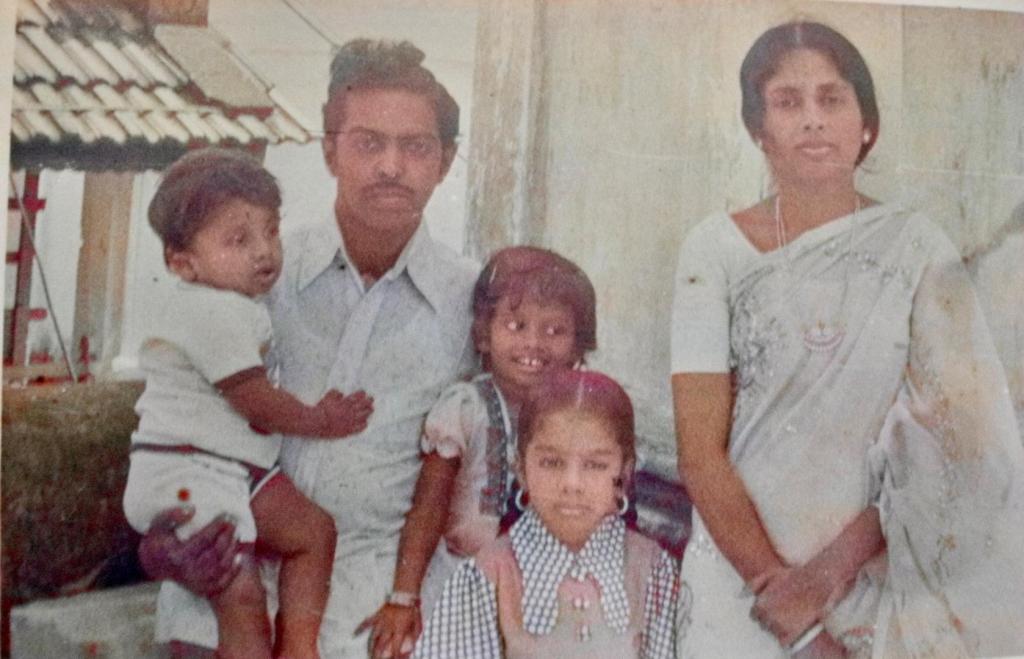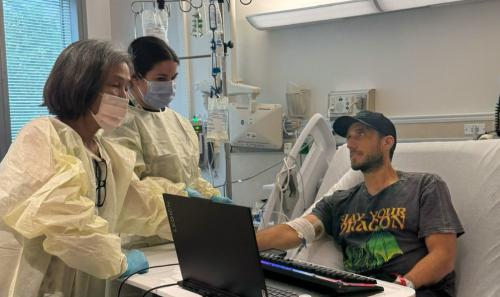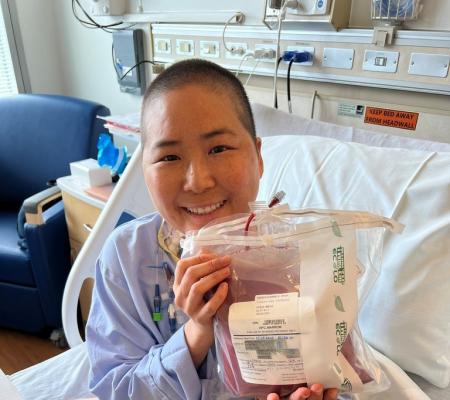
-
Understanding primary immunodeficiency (PI)

Understanding PI
The more you understand about primary immunodeficiency (PI), the better you can live with the disease or support others in your life with PI. Learn more about PI, including the various diagnoses and treatment options.
-
Living with PI
-
Addressing mental health
-
Explaining your diagnosis
- General care
- Get support
- For parents and guardians
-
Managing workplace issues
- Navigating insurance
-
Traveling safely

Living with PI
Living with primary immunodeficiency (PI) can be challenging, but you’re not alone—many people with PI lead full and active lives. With the right support and resources, you can, too.
-
Addressing mental health
-
Get involved

Get involved
Be a hero for those with PI. Change lives by promoting primary immunodeficiency (PI) awareness and taking action in your community through advocacy, donating, volunteering, or fundraising.
-
Advancing research and clinical care
-
Research Grant Program
-
Consulting immunologist
-
Diagnosing PI
-
Getting prior authorization
-
Clinician education
-
Survey research
-
Participating in clinical trials

Advancing research and clinical care
Whether you’re a clinician, researcher, or an individual with primary immunodeficiency (PI), IDF has resources to help you advance the field. Get details on surveys, grants, and clinical trials.
-
Research Grant Program
In 1982, Antony and Alphonsa Raj sold everything they had and took their 7-year-old daughter Susanna to Canada, days after their youngest son, Savio, 6, died from infections resulting in fever, lung lesions, and kidney problems.
Susanna also suffered from constant infections, and her older sister Sharmila died from infections at age 6. Doctors in their home country of India suspected an immune problem but didn’t have the tools to confirm the diagnosis.

Desperate to discover the reason for their daughter’s persistent illnesses and find perhaps some insight into the deaths of their other two children, the family sought a diagnosis in Canada upon their doctors’ recommendation in India.
After just a month living abroad, the family learned the cause of their daughter’s poor health - chronic granulomatous disease (CGD). Though the family had a diagnosis for their daughter, keeping her healthy would be a struggle.
“There was no treatment anywhere at the time, just preventative care,” explained Susanna. “With most of our hopes dashed for a possible cure or treatment, we returned to India completely broke. My parents started over with the help of family and friends.”
Susanna’s father worked, and her mother stayed home to care for her. Though she lived indoors in isolation, Susanna still developed infections that doctors treated with heavy antibiotics.
“Progressively, over the years, my health deteriorated. I came down with many cases of bacterial pneumonia of the lungs and was in and out of hospitals. I was homeschooled mostly, but as the infections increased, I was unable even to continue that,” said Susanna.
“I was admitted to the hospital for periods of up to five days to five months. Funds eventually ran out. The infections were becoming heavily resistant to powerful antibiotics and were taking an enormous toll on my organs.”
Susanna spent most of 1993 in the hospital with double pneumonia and lung lesions. Intravenous antibiotics had little effect, and antifungals resulted in side effects worse than the infections.
“The prognosis was bleak,” said Susanna.
The following year, however, brought news of a promising new treatment, interferon gamma-1b, which could strengthen the immune systems of people with CGD. Susanna’s parents managed to find a sponsor who donated the expensive drug, and Susanna’s 8-month lung infection resolved within days.
“By this time, it became very clear to my doctors in India that better and easier access to new treatment options and immediate access to experts in the field of CGD was vital to my continued survival,” said Susanna.
“We received an invitation from Stanford to come to the U.S. to be evaluated and investigated for possible treatment plans for CGD with Actimmune.”
After tremendous logistical and financial struggles with visas, Susanna and her parents immigrated to the United States in 1995 to take advantage of the treatments.
“It’s like a booster for your immune system, for the parts that are still working,” she said. “It did work. It reduced the amount of time in the hospital and decreased the severity of illness. It really worked wonderfully for me. I didn’t get sick at all.”
Today, Susanna lives in Mountain View, California, with her parents, who are retired. Three times a week, she takes injections of Actimmune, a treatment she’ll use for the rest of her life to stay healthy.

Though the treatment brought her good health, it didn’t help Susanna navigate the hurdles of settling in the U.S. as an immigrant. She moved to the U.S. on a medical visa, which prevented her from attending college or working.
“That’s a struggle. It keeps you from living,” she said.
As she did her best to stay healthy, her parents worked hard to pay for her health expenses, and they were able to eventually obtain their green cards, offering them a pathway to U.S. citizenship. Once they obtained citizenship, Susanna’s parents sponsored her, and in her mid-30’s she obtained her green card.
Susanna immediately attended two years of community college and then graduated from Santa Clara University in 2014. She earned dual majors in psychology (with an emphasis in cognitive science) and studio art.

An internship led her to the field of artificial intelligence, where she worked on human emotion modeling for self-driving vehicles and smart devices. She also co-authored a research paper on emotion user-interface for MobileHCI 2018, a conference on human-computer interaction with mobile devices and services.
As a cognitive science researcher and AI ethicist, Susanna is now developing her own company, A14Nomads, a mobile data annotation platform designed to empower disenfranchised workers, including refugees, displaced workers, and women, with the skills needed to earn a living through AI data labeling.
Though she lost over a decade of progress in her career and education due to her health and the U.S. immigration laws, Susanna is determined to keep moving forward.
“My personal goal is to see changes in medical visas, changes in educational structures for people like me, and to see major changes in medical insurances, health coverages, and drug development,” she said.
Related resources

Man with X-linked hyper IgM first-ever to receive novel gene therapy

Pharmacist with CVID receives bone marrow transplant

Undiagnosed: Reuben & Sherri Johnson on CGD, chronic illness, and the fight for healthcare
Sign up for updates from IDF
Receive news and helpful resources to your cell phone or inbox. You can change or cancel your subscription at any time.





The Immune Deficiency Foundation improves the diagnosis, treatment, and quality of life for every person affected by primary immunodeficiency.
We foster a community that is connected, engaged, and empowered through advocacy, education, and research.
Combined Charity Campaign | CFC# 66309

